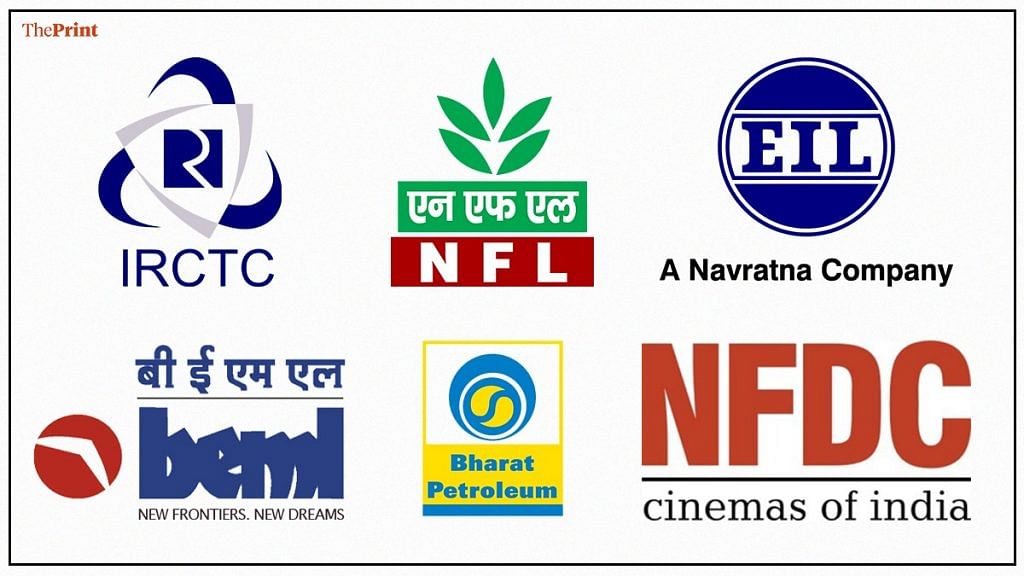New Delhi: The top posts in 15 public sector enterprises are lying vacant, as are many more top management posts like directors looking after important verticals across large- and mid-sized state-owned firms, according to data available with the Public Enterprises Selection Board.
Among the prominent headless PSUs are firms like Engineers India Ltd, Indian Railway Catering and Tourism Corporation (IRCTC), BEML Ltd, BPCL, National Fertilizers Ltd and National Textile Corporation Ltd.
While in some cases the vacancies have arisen in the last few months, others have had posts vacant since as far back as 2017. In most cases, the PSU’s charge has been handed over to another senior official in the PSUs, or to ministry officials of relevant government departments.
An email sent to the spokesperson for the Prime Minister’s Office about this issue on 17 March remained unanswered till the time this report was published.
Also read: Govt always makes efforts to revive potential PSUs, says Prakash Javadekar in Lok Sabha
Selection body itself is headless
The fact that the board entrusted with helping the government fill up these vacancies is also missing a chairperson and a member has not helped in the recruitment process.
According to the existing structure, the PESB has a chairperson and three members, and while the former post has been vacant since September 2020 when Rajiv Kumar was appointed election commissioner, one of the member posts is also empty.
An email sent to one of the members of the PESB for comment on 15 March remained unanswered.
J.N. Gupta, co-founder of Stakeholders Empowerment Services, a corporate governance research and advisory firm, said: “It is never a good practice to have any organisation without a leader. Most of the PSUs, despite being of very good value, are not valued by the investors properly just because of minor governance issues. The vacant top posts are one such example. It is immaterial if the PSU is listed or unlisted; any entity without a leader is bound to suffer in its prosperity.”
PESB data shows many vacancies among director-level posts as well, and some in verticals that may be integral to the running of a PSU’s operation.
For instance, the post of Director (Refineries) in the Indian Oil Corporation has been vacant since July 2020. A similar post in BPCL is also empty, with another director holding additional charge. The post of Director (Power) in Bharat Heavy Electricals Ltd is also vacant.
To be sure, the government has used the poor performance of the PSUs in its initial draft cabinet note pushing for privatisation, which was circulated last year. It had pointed out how the market capitalisation of the listed state-owned firms was only around 8 per cent of the total market capitalisation of all firms, down from 13 per cent five years back. In addition, firms like BPCL are in the final stages of a strategic stake sale.
‘Empty posts causing havoc’
Gupta’s views were echoed by former school education and coal secretary Anil Swarup, who sought to draw PM Narendra Modi’s attention to the havoc these empty posts are causing to the functioning of these organisations.
Someone needs to tell @narendramodi about the havoc these vacancies are causing at various level. Decision on most of these critical posts is pending @PMOIndia. PM is a patient listener but someone needs to tell him. Who will tell him? My take on CNBC TV18https://t.co/340TzZnBF9
— Anil Swarup (@swarup58) March 13, 2021
Swarup pointed out that poor human resources management is one of the reasons for the poor performance of central PSUs.
“We can keep cursing the Central Public Sector Undertakings for poor performance. Some of it may be well deserved but one of the many reasons is our poor human resource management. A large number of Public Sector Undertakings have been left headless and without Directors for months together, adversely impacting the performance of these entities,” he wrote in a column for CNBC TV18.
Citing the example of Coal India, where the absence of a chairman-managing director or CMD “created havoc”, Swarup pointed out that after record coal production during 2014-15 and 2015-16, there was yet again an acute shortage of coal in the country and CIL was without a regular CMD for a year. He added that the situation improved once a full-time CMD took over.
(Edited by Shreyas Sharma)
Also read: Under Modi govt, top bosses of PSU banks have stopped getting extensions
